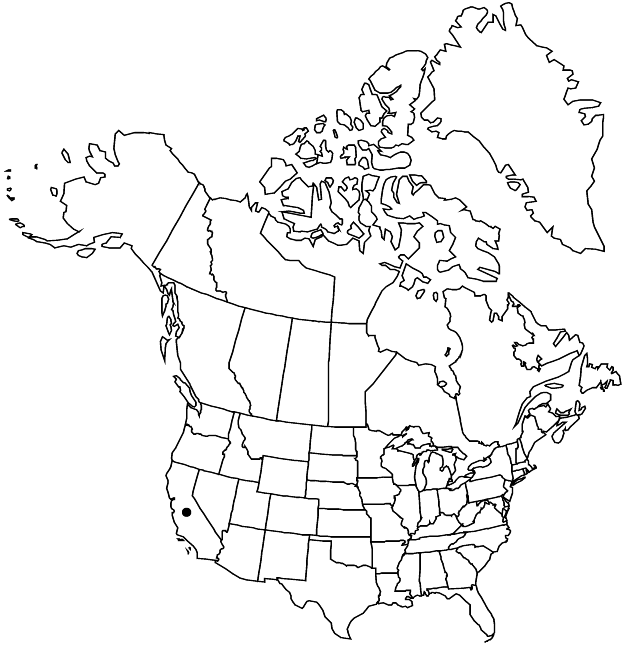familyPolygonaceae
subfamilyPolygonaceae subfam. Eriogonoideae
genusEriogonum
subgenusEriogonum subg. Eucycla
speciesEriogonum ovalifolium
Difference between revisions of "Eriogonum ovalifolium var. vineum"
Bot. Gaz. 52: 262. 1911.
Common names: Cushionbury wild buckwheat
EndemicConservation concern
Basionym: Eriogonum vineum Small Bull. Torrey Bot. Club 25: 45. 1898
Synonyms: Eriogonum ovalifolium subsp. vineum (Small) S. Stokes
FNA>Volume Importer |
imported>Volume Importer |
||
| Line 8: | Line 8: | ||
}} | }} | ||
|common_names=Cushionbury wild buckwheat | |common_names=Cushionbury wild buckwheat | ||
| + | |special_status={{Treatment/ID/Special_status | ||
| + | |code=E | ||
| + | |label=Endemic | ||
| + | }}{{Treatment/ID/Special_status | ||
| + | |code=C | ||
| + | |label=Conservation concern | ||
| + | }} | ||
|basionyms={{Treatment/ID/Basionym | |basionyms={{Treatment/ID/Basionym | ||
|name=Eriogonum vineum | |name=Eriogonum vineum | ||
| Line 57: | Line 64: | ||
|publication title=Bot. Gaz. | |publication title=Bot. Gaz. | ||
|publication year=1911 | |publication year=1911 | ||
| − | |special status= | + | |special status=Endemic;Conservation concern |
| − | |source xml=https:// | + | |source xml=https://bitbucket.org/aafc-mbb/fna-data-curation/src/2e0870ddd59836b60bcf96646a41e87ea5a5943a/coarse_grained_fna_xml/V5/V5_648.xml |
|subfamily=Polygonaceae subfam. Eriogonoideae | |subfamily=Polygonaceae subfam. Eriogonoideae | ||
|genus=Eriogonum | |genus=Eriogonum | ||
Revision as of 22:12, 5 November 2020
Plants 1.5–2.5 dm wide. Leaf blades usually round, 0.7–1.2 cm, densely white-lanate, margins not brownish. Scapes erect or nearly so, 3–6 cm, floccose to nearly glabrous. Inflorescences capitate, 1.5–3.5 cm wide; branches absent. Involucres 2–4(–5) per cluster, 5–7 mm. Flowers 5–7 mm; perianth white to cream.
Phenology: Flowering May–Jun.
Habitat: Limestone talus slopes, creosote bush and saltbush communities, conifer woodlands
Elevation: 1500-2100 m
Discussion
Of conservation concern.
Variety vineum is a rare and localized taxon restricted to the Cushionbury Grade area of San Bernardino County. It has been designated federally as endangered (see M. C. Neel et al. 2001; Neel and N. C. Ellstrand 2003) and is in the Center for Plant Conservation’s National Collection of Endangered Plants. The plants are highly attractive and worthy of cultivation.
Selected References
None.
Lower Taxa
None.
